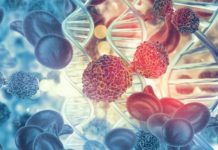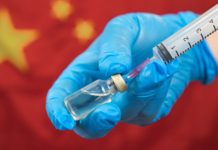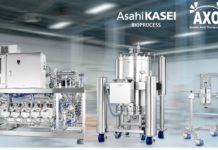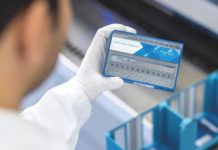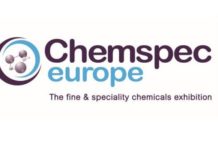Polyplus-transfection SA, a privately-held company specializing in the development of innovative solutions for transfection, today announces the launch of FectoPRO(TM), the latest optimised transfection reagent in their product portfolio. FectoPRO has been designed for high yields in medium and large-scale production of proteins and antibodies in mammalian cells.
Polyplus has designed FectoPRO to deliver very high protein yields in CHO and HEK cell line systems, the current industry standard systems and most commonly used by bio-production scientists. FectoPRO will also produce up to three times more protein using half the DNA required by other leading commercial transfection reagents. In addition, scientists working with transient gene expression (TGE) systems using FectoPRO will be able to benefit from reproducibility experiment-to-experiment and between reagent batches.
“The bio-production markets, specifically those using larger scale transient transfection systems, have continued to increase their need for higher protein yields whilst decreasing costs and reducing the time to develop viable lead molecules. In our communication with customers, across all sections of this market, these were the consistent and clear messages coming back to us time and time again,” said Mark Bloomfield, CEO of Polyplus-transfection. “This is why Polyplus has introduced FectoPRO into its product portfolio.”
Sales of transfection reagents for bio-production applications such as larger scale TGE contribute approximately 10% of Polyplus’ current revenues. Based on current FectoPRO performance data and the massively positive response to the initial product launch at PEGS, FectoPRO is expected to increase bio-production sales to more than 30% of Polyplus’ revenues.
“In our hands, FectoPRO gives the highest protein production yields we have ever reached using transient transfection,” said Philippe Funfrock, CEO at ProteoGenix SAS. “Our company offers custom services including protein production in mammalian cells. Being able to produce a lot more protein without revisiting our expression system opens a whole new range of possibilities for our antibody and protein production services.”
Polyplus noticed the changes in market demand in early 2012. They began initial research, selecting a suitable compound from the extensive Polyplus library that had the potential to meet or exceed these specific customer needs. The development phase of the project started in 2013, and required extensive testing of the lead candidate in a wide range of in house TGE systems. In addition, Polyplus arranged for a number of independent CMO/CROs including ProtoGenix to evaluate the candidate in their own proprietary systems. They fully benchmarked performance against other commercially available reagents. The reagent was transferred to Polyplus manufacturing and documentation relating to the Polyplus Quality Management System was completed. FectoPRO was first presented to select scientists attending the PEGS meeting in Boston (5 – 9 May 2014).
The FectoPRO transfection reagent offers scientists working in pharmaceuticals and biotechnology specific advantages over other commercial transfection reagent offerings for bio-production. The reagent is well characterized in terms of chemical structure and is supplied ready-to-use. FectoPRO is also manufactured and formulated using a highly specific and controlled production process in Polyplus’ dedicated manufacturing facility.
Note to editors
Gene transfection is achieved by the introduction of a plasmid into the nucleus of a living cell stimulating the cell to produce a protein. Transient gene transfection is a means of producing recombinant proteins or antibodies for use in industry and therapy. In early stage bio-drug development, biopharmaceutical and biotech companies use large-scale transient gene expression (TGE) in suspension-adapted mammalian cell lines to produce milligram to gram quantities of recombinant proteins for therapeutic research. Indeed, as long as therapeutic recombinant proteins have not successfully completed Phase II and III clinical trials, transient gene transfection is more cost effective than developing stable cell lines for recombinant protein production. Transient gene transfection also permits the rapid expression of r-proteins under optimized conditions. The defacto industry standard protocol for efficient and cost effective protein production is a combination of modified HEK-293 and CHO cells transfected with a DNA/linear polyethylenimine (PEI) complex.
About Polyplus-transfection
Polyplus-transfection SA is a biotechnology company that develops, markets and sells innovative solutions for the in vivo, in vitro and ex vivo delivery of nucleic acids in research, bioproduction and therapeutics. Located close to the University of Strasbourg in Eastern France, Polyplus-transfection has been ISO 9001-certified since 2002 and supplies its proprietary range of reagents for the transfection of genes, oligonucleotides and siRNA through a worldwide distributor network. Polyplus reagents are involved in a growing number of clinical trials worldwide. In addition, Polyplus-transfection holds a broad estate of patents and licenses including original methods for therapeutic siRNA delivery.
For more information, please visit the Polyplus-transfection web site at: www.polyplus-transfection.com
Neil Hunter
Life Sciences Director
Image Box Ltd.
Unit 1C
Spinnaker Court
Becketts Place
Hampton Wick
Surrey.
KT1 4EW
T: 020 8943 4685
M: 0777 333 6517
E: neil.hunter@imageboxpr.co.uk
W: www.imageboxpr.co.uk



